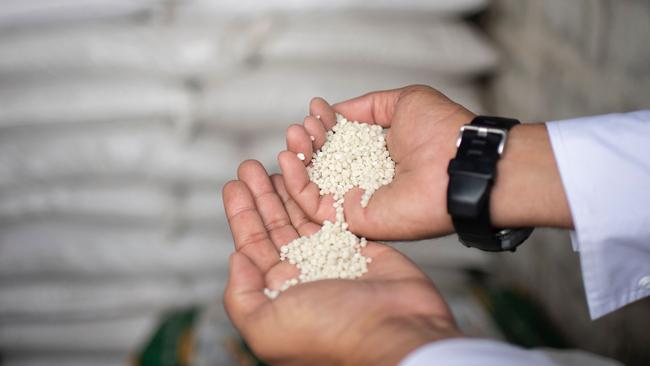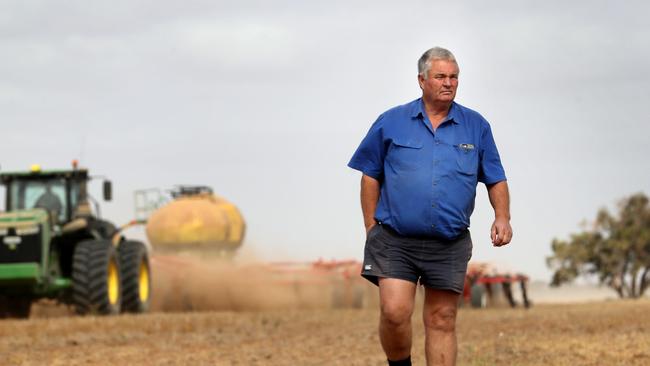Fertiliser suppliers change farmer contracts after ACCC probe
Fertiliser suppliers will modify contracts with farmers after the ACCC found “potentially unfair” terms in agreements.
Fertiliser companies have agreed to remove unfair terms from their contracts with farmers following a consumer watchdog investigation.
The Australian Competition and Consumer Commission launched the probe after identifying terms in standard form small business contracts that gave suppliers the power to “unilaterally vary” the quantity of fertiliser it could deliver to buyers.
It also found clauses allowing suppliers to terminate agreements if they thought they could not supply goods, and terms restricting a buyers’ right to complain about defective products.
It is believed three suppliers were involved.
ACCC deputy chair Mick Keogh confirmed numerous complaints had been received that fertiliser suppliers were “using contracts in a way that could disadvantage farmers”.
“We will continue to monitor traders in the fertiliser industry and, more broadly, across the agricultural sector, and we will investigate if we have concerns with contract terms,” Mr Keogh said.

Meanwhile, new provisions will come into force on November 10 giving the ACCC powers to initiate court action against companies or individuals for breaching unfair contract term law.
Companies will risk fines of up to $50 million under the new provisions.
According to the ACCC, a term in a standard form contract becomes unfair when it creates a power imbalance between parties or could cause financial harm if enforced.
The Dairy Code of Conduct was introduced to overcome similar issues in that industry, while the ACCC asked winemakers in 2019 to review their standard form contracts with growers to remove any unfair terms.
Fertilizer Australia executive manager Stephen Annells said a standard template contract was created following extreme fertiliser price fluctuations 15 years ago.
“The template meets all legislation requirements and has served the industry well and successfully facilitated the sale of over 80 million tonnes of fertiliser,” he said.
He said the ACCC asked Fertilizer Australia in February this year to review particular clauses in the template in light of the new provisions.
It then proposed amendments accepted by the ACCC and “many (members) have already adjusted their contracts to ensure they comply.”
“It’s important to note that the contract in question is a template, many fertiliser organisations use it as a basis for their own contracts but, of their own volition,” Mr Annells said.

The news comes as farmers along the Australian eastern seaboard recently faced a major shortage of urea following unseasonal rainfall.
Fertiliser suppliers and retailers resorted to rationing deliveries to only “what is absolutely needed” during the surge in demand and with depleted retail stocks.
The key driver of the shortage was the long-range El Nino forecast softening retail demand for urea, which led to a reduction in import orders over recent months.
Farmers have been reluctant to invest heavily on stockpiles after the covid-era supply chain crisis pushed up prices worldwide.

However, Victorian grains farmer Craig Henderson said a growing number of farmers were erecting fertiliser sheds on properties through western Victoria to mitigate against future fertiliser supply failures.
“Infrastructure adds to costs and buying extra fertiliser ties up capital and cash flow, but it is a business decision,” he said.
“People want to take the risk out of the equation and are putting up new sheds and will buy early when the cost of fertiliser drops.”



